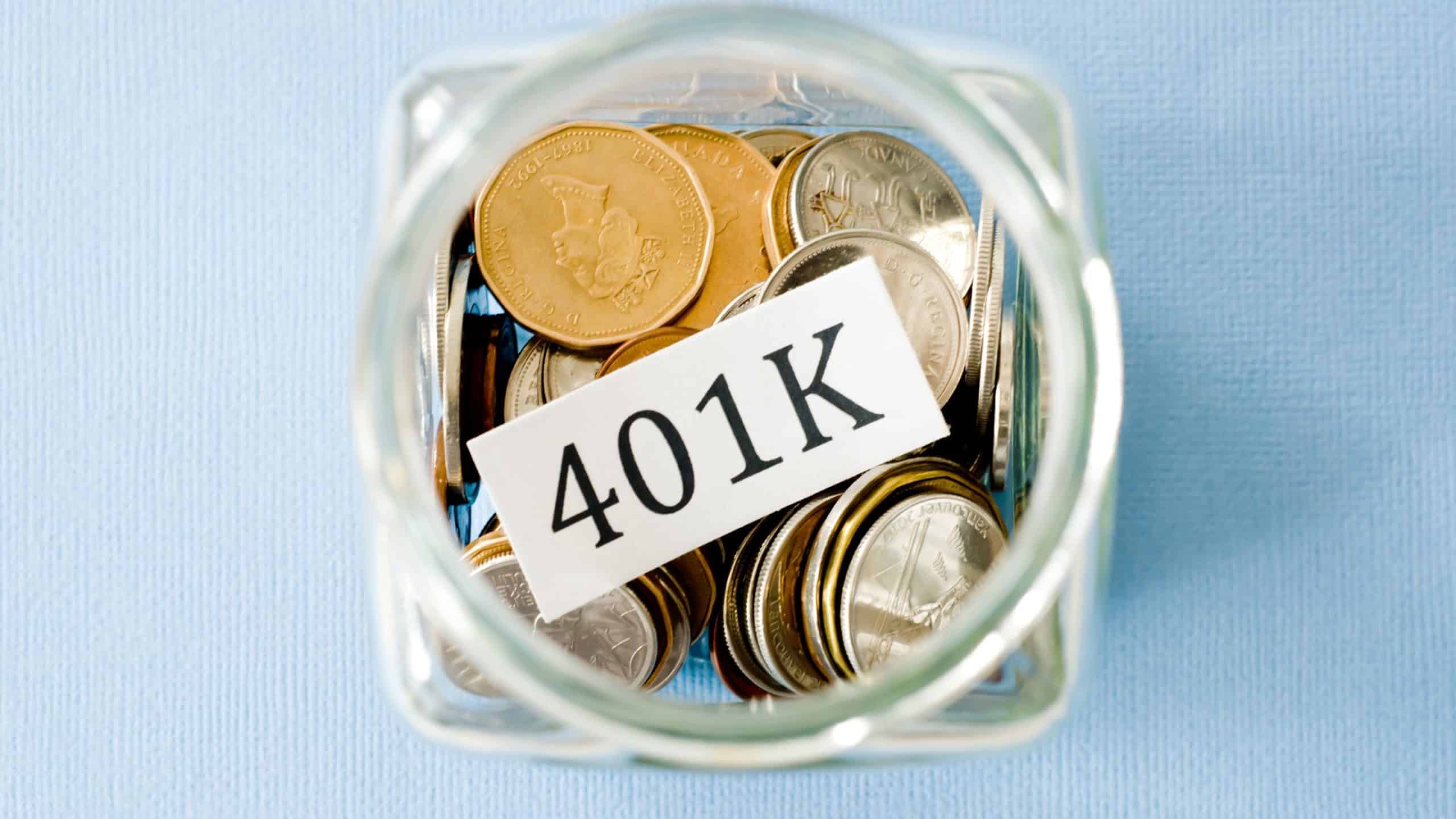The 401(k) plan is the largest asset many investors own accounting for 36.2% of their total net worth according to the U.S. Census Bureau.
Regularly checking your 401(k) account can help you stay on top of your investments, and make sure that your money is working for you in the best way possible.
What is a 401k?
A 401(k) is a type of retirement savings plan offered by many employers to their employees. It is a tax-advantaged savings plan that allows employees to set aside money from their paycheck on a pre-tax or after-tax (Roth) basis, into an individual account established in their name.
The money in the account is invested and grows over time, and the employee can use the money in the account during their retirement years.
Employers may also choose to match a portion of the employee’s contributions , which can provide an additional incentive for employees to participate in the plan.
The 401(k) plans are governed by the Employee Retirement Income Security Act of 1974 (ERISA) and are administered by the Employee Benefits Security Administration (EBSA).
The 401(k) plans have contribution limits set by the government (see 401(k) annual contribution limits here) and the money in the account is typically invested in a variety of investment options, such as ETFs, mutual funds, stocks, and bonds.
Withdrawals from the account before age 59 1/2 may be subject to penalties and taxes, but after reaching the age of 59 1/2, the employee can start withdrawing money without penalties. There are special rules that allow you to withdraw at age 55 if you retire early.
401(k) plans have become extremely popular in the U.S., and for good reason – they offer an excellent way to save for retirement and have virtually replaced the pension.
Why is it important to check your 401k?
It is important to check your 401k regularly because it is the primary way many save for retirement.
Investing in a 401k allows you to take advantage of tax-deferred growth, meaning you won’t pay taxes on any earnings or contributions until you withdraw the funds.
Most employers will provide online access to your 401(k) account where you can check the performance of your investments and make adjustments as necessary.
Additionally, if you are changing jobs or retiring, checking your 401(k) is a must so that you understand exactly how much money you have saved and what options you have for managing it in the future. Especially, if you plan on rolling over your 401(k) to an IRA.
It’s also important to monitor your investments and rebalance them as needed to ensure that your savings are properly invested for long-term growth. Life will throw plenty of curveballs at you and your financial goals will often have giant hurdles to overcome.
Don’t get discouraged—each setback is an opportunity for you to learn, grow, and come back stronger. You must have a vision for your future and strive to make it a reality.
Checking your 401k routinely can also help you track progress toward financial goals such as retirement saving milestones and your other aspirations.
Why You Need to Check Your 401k Frequently
| Check Your 401k: | Reason: |
| Monitor account balance | By checking your account balance, you can make sure your investments are on track to your desired retirement target date. |
| Review investment holdings | By reviewing your investment holdings, you can ensure your investments are aligned with your risk tolerance and investment goals. |
| Check contributions | By checking your contributions, you can ensure you are on track to reach your savings goals, and your contributions are being invested wisely. |
| Monitor performance | By tracking your account’s performance, you can compare it to similar investments, and see if adjustments are needed for your investment strategy. |
| Check account fees | Make sure your 401k is cost-effective |
How Often Do You Need to Check Your 401k?
It’s generally recommended to check your 401(k) account at least once a quarter, or four times a year. This allows you to keep an eye on your account balance, investment holdings, contributions, and performance, and make any necessary adjustments to your investment strategy.
However, some experts recommend that you check your account monthly or even more frequently, especially if you are nearing retirement or making significant changes to your investment strategy.
All are good suggestions on how often to check your 401k. Whatever you do, please know this:
Additionally, it’s a good idea to review your account statements as soon as you receive them, to ensure that all of the information is accurate and to check for any errors.
If you notice any discrepancies or have any questions, it’s important to contact your plan administrator or a financial advisor as soon as possible.
What if You Have Multiple 401k Accounts?
If you have multiple 401(k) accounts, it’s important to keep track of each one.
Personal Capital is a financial management tool that allows you to track all of your financial accounts, including 401(k)s, in one place.
By linking your 401(k) account to Personal Capital, you can view your account balance, investment holdings, contributions, and performance, as well as get a holistic view of your overall financial situation.
| Personal Capital also provides investment tracking, retirement planning, and budgeting tools to help you manage your finances and reach your financial goals. |
Once you link your 401(k) account to Personal Capital, you can check your account balance and investment performance in real-time, and track your progress towards your retirement goals.
It’s important to note that you should always check the 401(k) account with the provider or plan administrator for the most accurate and up-to-date information, Personal Capital can be a great tool to keep an eye on your 401(k) account, but it should be used as a complement to the account’s provider.
The Bottom Line on Checking Your 401(k)
You’ve worked hard and saved for the future, so it’s important that you stay on top of your 401(k) investment. Checking in with your 401k occasionally can help ensure that you’re getting the most out of it.
Simple steps like reviewing quarterly statements, rebalancing regularly, maintaining the right mix of investments, and autopilot investing can help you keep tabs on how your retirement funds are doing without having to focus on it all the time.
It’s also important to remember to review other fees charged for managing or balancing a 401(k) – extra charges over time can really add up.
Knowing what to look for is key when checking your 401k – staying informed will help make sure you get the most out of your retirement savings.
Time needed: 1 hour and 15 minutes.
How to Check Your 401(k) Balance
- Log in to your 401(k) account online
Most 401(k) plans offer online access, where you can log in to view your account balance, see your investment holdings, and track your account’s performance.
- Check your account balance
Once logged in, check your current account balance and see how it has changed over time.
- Review your 401k investment holdings
Review your investment holdings and see how they have performed. This includes checking the current value of each holding, as well as its historical performance.
- Check your 401k contributions
Check your contributions to your 401(k) account, and make sure that you are on track to reach your savings goals.
- Monitor your 401k performance
Track your account’s performance over time and compare it to the performance of similar investments. You can also check your account’s performance against your retirement goals and see if you need to make any adjustments.
- Check your account fees
Check the fees associated with your 401(k) account, such as administrative fees and management expenses, to ensure that they are reasonable.
- Verify with a financial advisor
If you have questions or need help interpreting your account information, consult with a financial advisor to help you understand your account and make any needed adjustments.
Research Articles Cited
- IRS.gov (n.d.) 401(k) Plans Retrieved from https://www.irs.gov/retirement-plans/401k-plans
- Donald Hays and Briana Sullivan (2022 Aug 1st) The Wealth of Households: 2020. Retrieved from https://www.census.gov/content/dam/Census/library/publications/2022/demo/p70br-181.pdf



